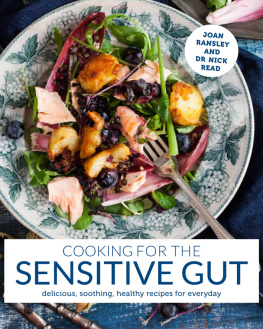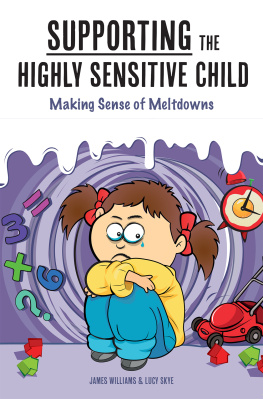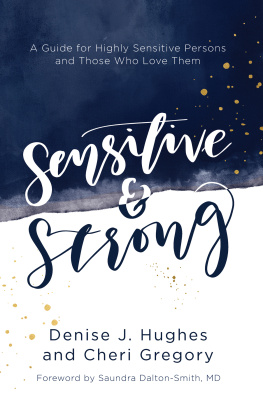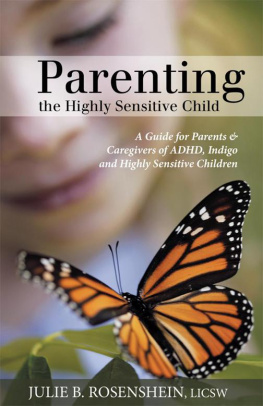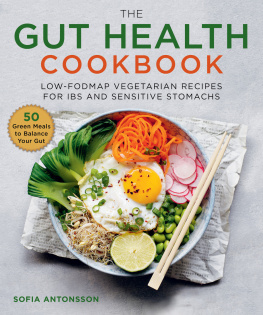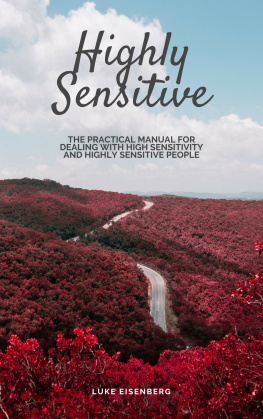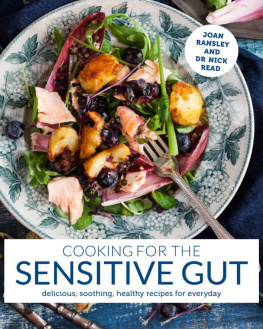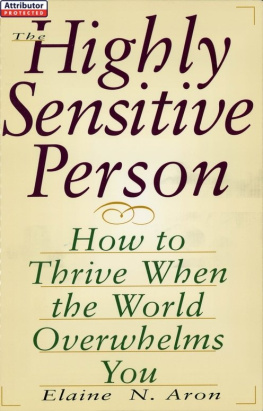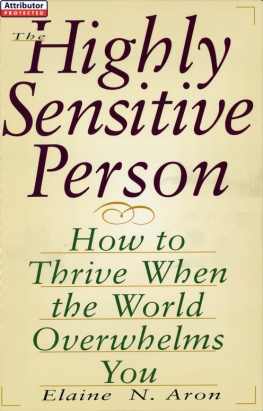COOKING FOR THE
SENSITIVE GUT

COOKING FOR THE
SENSITIVE GUT
delicious, soothing, healthy recipes for every day
DR JOAN RANSLEY
AND
DR NICK READ

The Authors
Dr Joan Ransley is a freelance cook, nutritionist, food writer and honorary lecturer in Nutrition at the University of Leeds. She is a member of the Guild of Food Writers. Joan writes for The Yorkshire Post on food and cookery. She is a tutor at the School of Artisan Food and on The Guardians highly successful Masterclass programme. Joan holds a Masters degree and a PhD in Human Nutrition. Joans food photography has been awarded a 3rd and 2nd place in the prestigious Pink Lady Food Photographer of the Year Competition in 2014 and 2015 respectively. www.joanransley.co.uk
Dr Nick Read is a gastroenterologist and a psychotherapist. For many years, he was Professor of Human Nutrition and Gastrointestinal Physiology at Sheffield University, before becoming Professor of Integrated Medicine. His popular book, Sick and Tired: Healing the Illnesses Doctors Cannot Cure, was published in paperback in August 2006 (Weidenfeld and Nicolson). He is Chair and Medical Adviser for the IBS Network, an independent charity that supports, informs and advises people with irritable bowel syndrome (IBS). He has a long-standing interest in food and cooking. www.nickread.co.uk

Contents
INTRODUCTION
It is a curious fact that, at a time when those of us living in the so-called developed world are better nourished than ever before, as many as 30% of us claim to be intolerant of, or allergic to, the food we eat. Just think back to the last time you had people round for dinner, or went out to a restaurant with friends How many of them refused to eat something on the menu? Perhaps they were avoiding wheat. Maybe it was milk or dairy. Free-from foods are big business these days, but only about 1% of the population has a specific food allergy. The majority have food intolerance.
There is a difference. While food allergies are scientifically measurable, food intolerance is a non-specific sensitivity. Common culprits include fatty foods, chilli or coffee, which all stimulate gut contractions or spasm; coarse wheat bran that directly irritates the gut; and a group of poorly absorbed sugars that can distend a sensitive gut either by drawing in fluid or by being fermented, releasing gases. The latter have been brought together under the term FODMAPs (Fermentable Oligosaccharides, Disaccharides, Monosaccharides and Polyols) and foods containing these sugars include onions, wheat, beetroot, certain fruits and fruit juices and in some people milk.
When they go to their doctor, most people with long-standing intolerance to food are diagnosed with irritable bowel syndrome (IBS), a poorly understood disturbance of gastrointestinal sensitivity with no definite cause or specific cure. In a study we carried out together, we found that people who suffered from IBS were sensitive to between 5 and 22 different food components. Whats more, their intolerance tended to come and go and was often related to what was happening in their lives. This suggested to us that, in IBS, it is not so much the specific foods that are the problem, but a sensitive gut.
Do you remember when you last spent an afternoon in the sun and then put your top on? Your skin felt as if it were burning. Well, your gut can become sensitive, too. It has sense organs just like the skin; only these respond to stretch and distension, the texture of food, its chemical composition, and any event or situation that upsets the gut. And when these sense organs are over-sensitive, stimulation causes a sensation of pain, fullness or bloating.
IBS does not have to be a life sentence. This book puts you in control of your own illness. Not only will we explain why your gut became sensitive, why you can tolerate some foods and not others, and what causes your illness to come and go, but we will also show you how to prepare a huge range of delicious dishes that calm your gut reactions and help you live in confidence with your IBS. Whats more, your family will enjoy the recipes, too. Allowing yourself just a little time each day to cook something you love is a form of mindfulness; it relaxes you and gives you control of what you eat. This in itself will help to reduce any anxiety you feel around food, so you can once again look forward to enjoying your meals with confidence.

You are what you eat
Ninety per cent of the diseases known to man are caused by cheap foodstuffs. You are what you eat.
Victor Lindlahr, 1942
Human beings are omnivores. Our gut evolved when we were hunter-gatherers, feeding on meat, eggs and the roots, leaves, stems, fruits, nuts and seeds of a whole variety of plants and has probably not changed much since. Nevertheless, within a relatively short span of 10,000 years, the food we eat has altered beyond all recognition.
Stable communities were built on the husbandry of animals, which produced milk as well as meat, and the cultivation of grasses to create cereals that could be ground into flour. We learned how to preserve and store food to feed us over winter or in times of famine. Cooking changed the consistency and palatability of foods, making them easier to digest and more appetising. Spices improved their flavour and assisted digestion. Growing crops worldwide on an industrial scale has meant that we no longer rely on seasonal produce, but can buy any food we want from our local supermarket.
This exciting new culinary world comes at a cost. We still have the digestive system of a Neolithic hunter-gatherer, not always able to cope with the sheer volume and variety of the highly processed food that we eat today.
For example, as soon as they are weaned, 80% of people in the world lose the enzyme that enables them to digest lactose (milk sugar), rendering them potentially intolerant to dairy products. Between 14 and 60% of people with IBS report that they are sensitive to cultivars of wheat, the staple food of 35% of the worlds population. Fructose, which is largely responsible for the sweetness of many fruits, is only slowly absorbed in the small intestine, which might explain why fruits and concentrated fruit juices can upset so many of us.
Many of the vegetables and fruits we eat contain complex starches and sugars that we cannot digest. Cows exist mainly on grass, but they have a 40-gallon fermenter for a stomach. Lacking their prodigious capabilities, we and our sensitive guts often struggle to cope with cereals, fruits and vegetables.
And although our gut may have evolved to digest and absorb gargantuan quantities of fat to supply the energy to last through the winter or times of famine an overabundance of rich and fatty foods all year round has contributed to a disastrous epidemic of obesity and related diseases.
But before we consider why the gut may have become so sensitive, we need to understand how it works.

Next page
